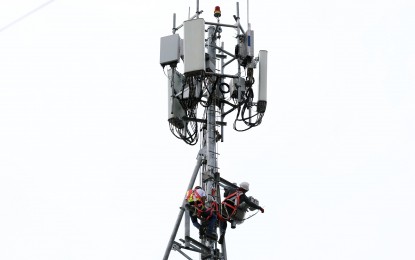
File photo
MANILA – Investing on information technology (IT) infrastructure is now among the priorities of the Duterte administration to ensure an inclusive recovery from the pandemic, Bangko Sentral ng Pilipinas (BSP) Governor Benjamin Diokno said.
During the virtual event hosted by the Asian Development Bank Institute (ADBI) Wednesday, Diokno said the government’s infrastructure program called Build, Build, Build is the key program targeted to ensure the sustainable growth of the domestic economy while investment in human capital is the key in bringing down poverty level.
He said government officials underscored the need to invest in IT infrastructure to “minimize the digital divide” because of the pandemic.
“We really need to make it available to even the lowliest families because if you want to do remote education, you can’t do that without infrastructure,” he added.
Diokno said the Duterte administration prioritizes infrastructure investment because the government’s infrastructure spending in the last 50 years is only about 2.6 percent to gross domestic product (GDP), a far cry compared to other countries in the region.
He said the current administration bids to allocate around 6-7 percent of GDP for its infrastructure program annually.
The government is able to finance the Build, Build, Build program because of the series of tax reforms that allowed it to increase revenues, he added.
In human capital, Diokno said having a young population that is tech-savvy is the Philippine economy’s “ace in our sleeves.”
“In an aging world, (a) young population with a right training and education will be a big boost to the economy,” he said.
On the improvement of IT infrastructure, Diokno hailed the signing of an Executive Order (EO) 127 that expanded the access to satellite services.
Under EO 127, which President Rodrigo Duterte signed last March 10, non-enfranchised but registered internet service providers (ISPs) and value-added service providers (VASPs) may directly access satellite systems to put up broadband facilities.
Diokno said monetary authorities are also supportive of pending bills in Congress that allow for open access on data transmission.
He said the measures aim to liberalize the information and communication technology (ICT) industry by lowering barriers to entry and simplifying the licensing process for broadband network providers.
“We are optimistic that with the passage of this bill, the digital divide will no longer be an issue in the Philippines,” he added. (PNA)
